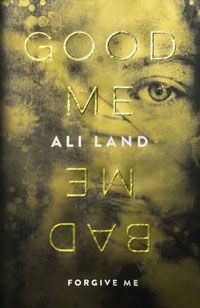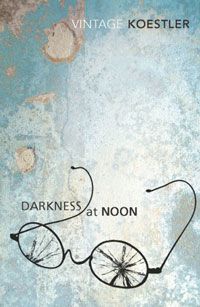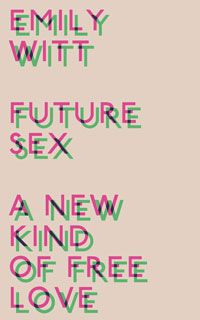Each week we bring you a sample of the books we’re reading, the films and TV shows we’re watching, and the music we’re listening to.
Ellen Cregan is reading Good Me, Bad Me by Ali Land
I’ve just polished off Ali Land’s extremely chilling novel. While this book is intensely disturbing, it’s very hard to put down. When it comes to crime fiction, I much prefer psychological thrillers over action-packed titles. As such, I like to think I’ve become pretty good at predicting the twists and turns of books within this genre. I think I’ve definitely got a bit too big for my boots, because this book left me stumped. Land is really good at messing with her audiences’ heads. The ending of this book left me feeling like I had a huge hole at the bottom of my stomach. One of the things I found most fascinating about this book is that Ali Land has a background in psychology, and I think it’s because of this that Millie’s inner monologue is so affecting.
Michael Skinner is reading Darkness at Noon by Arthur Koestler
In Darkness at Noon, Koestler captures the perverted logic and surreal brutality of Stalin’s show trials. Rubashov, once a high-ranking officer in the regime, is arrested for ‘political divergences’ and charged with a long list of offences, including a supposed plot to assassinate No. 1 (read: Stalin). Koestler’s brilliant novel recalls the twisted, arbitrary power of the state explored in Kafka’s The Trial, but is made all the more terrifying for its basis in fairly recent history.
Stella Charls is reading Future Sex by Emily Witt
Emily Witt’s essay collection opens with the following sentence: ‘I was single, straight and female.’ What follows is a fresh, wry investigation on sexuality in the new century. In her efforts to come to terms with the modern sexual landscape and explore how her own sexuality could be enriched by the practices of others, Witt spent five years covering various practices – from orgasmic meditation to polyamory, from webcam culture to Burning Man.
So many writers I admire have effusively praised Witt and Future Sex, including Eileen Myles, Sheila Heti, Tao Lin and Marc Greif. I’ve also listened to some great interviews with Witt which definitely influenced how much I enjoyed reading her book. (I recommend this one in particular.)
Apparently early drafts of Future Sex didn’t include Witt’s own experiences; the essays were written in third person rather than as a personal blend of memoir and cultural studies. It’s hard for me to imagine how it looked as Witt’s own reflections on the practices she tried personally and felt challenged by was the most interesting part for me. The book is pretty white and middle-class with many essays set within the wealthy San Francisico tech bubble, and ultimately, it didn’t move me as much as Maggie Nelson’s The Argonauts (to which it has been compared). But I still found Future Sex fascinating and was thoroughly entertained by Witt’s sharp observations of human behaviour.
A side note – Australian literary and culture podcast The Rereaders will be discussing Future Sex later this month as part of their new podcast book club!





